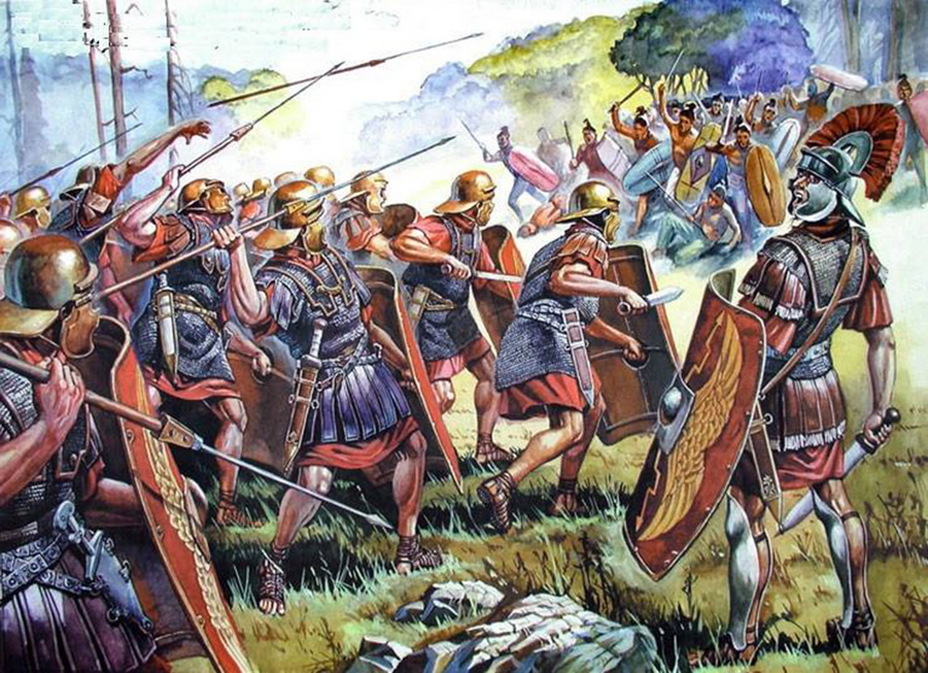
The Illyrian Revolt
It’s hard to keep track of all the different names used in all the different regions of the Balkans. This makes history a bit more difficult, because when things like Thrace, Illyria, Dalmatia, Ragusa, Dubrovnik, Macedonia, North Macedonia, and all the names in between are being tossed about, keeping them straight becomes nearly impossible.
And that is even more sad, because there are some incredibly cool stories about throughout Balkan history that get overlooked – epic movie level cool.
The Illyrian Revolt of AD 6 to AD 9, also called the Batonnian Uprising, is one of those epic cool made-for-the-movies moments in history.
First, the Batonnian Uprising is often called the Batonnian Uprising because it was led by two Illyrians of different tribes named Bato. Bato the Daesitiate and Bato the Breucian, along with many of their troops, had been part of Roman military auxiliary units. Illyrians were well-known mercenaries in their time, and considered very good soldiers. As a result of this, the troops involved in the uprising knew Roman tactics inside out and had a definite advantage in countering them.
And second, although history tends to group the Illyrians together, the truth is that they tended to fight and raid each other more than they fought and raided others. This is what made the initial Roman conquest of the Balkans easier than it might otherwise have been. The Batonnian Uprising was the only time that the Illyrian tribes joined together to fight a common enemy. Finally, the Batonnian Uprising was huge. Suetonius described it as, “…the most serious of all foreign wars since those with Carthage.” It was a big, very big, deal. It even delayed Tiberius’s second, far more famous, foray into Germania.
It was actually the mobilizing of troops to fight in Germania in AD 6 that triggered the uprising. When the governor of Illyria mobilized his troops, the Illyrians rebelled and initially defeated the Romans. They then proceeded to murder, rape, and pillage their way through Roman citizens and military veterans in the area through Macedonia. A shocked and worried Roman public began to demand action when the Emperor Augustus stated that the rebels could reach Rome within ten days. Reserves were quickly drawn up and deployed.
An easy measure of how serious this revolt was considered can be seen in the generals sent to fight it. Tiberius was recalled from Germania, and then Augustus sent Germanicus to Illyria as well. The Roman troops were obviously superior in a pitched battle, but the Illyrian troops attempted to keep those battles at a minimum and instead relied on more guerrilla warfare, which caused significant problems for the Roman army. Switching from conquest mode to counter-insurgency proved to be the correct course, although it took some reorganization to effect. Tiberius also used a scorched-earth tactic, and this is what ultimately caused the rebellion to begin to falter.
Illyrian tribes began to surrender, and those that continued fighting headed for the natural fortresses of the mountain areas. Bato the Breucian was captured, surrendered, and released. It was not good fortune for him to be let off easily, however, as he was then captured by the forces of Bato the Daesitiate and put to death for treason.
The end of the rebellion in AD 9 came as though written for a movie by JK Rowling. The last two tribes fighting, the Pirustae and Daesitiatae, were nearly decimated in their mountain holdouts. The village of Arduba (now the site of the Vranduk fortress in Bosnia and Herzegovina) was the last refuge of the fighters, and as the Romans approached a furious argument broke out between those who wanted to surrender and those who wished to keep fighting. The women of Arduba were completely unwilling to give themselves up to slavery through surrender, and when the Romans invaded the town took their children and committed suicide by jumping off the cliff or throwing themselves in the fires that had overtaken the village. Bato the Daesitiate was captured and although the specific incidents that set off the rebellion were never recorded, he left this epitaph about its origins before being sent off to exile, “You Romans are to blame for this; for you send as guardians of your flocks, not dogs or shepherds, but wolves.”
This revolt marked the end of the Illyrians. Aside from the scorched earth tactics and atrocities committed during the rebellion, the remaining Illyrians were mostly either sold as slaves or shipped off to live in exile in other places among strangers.
And it leaves us to ask, in a world hungry for epic stories of revenge and righteous rebellion – how has the Batonnian Uprising not been made into a movie?
